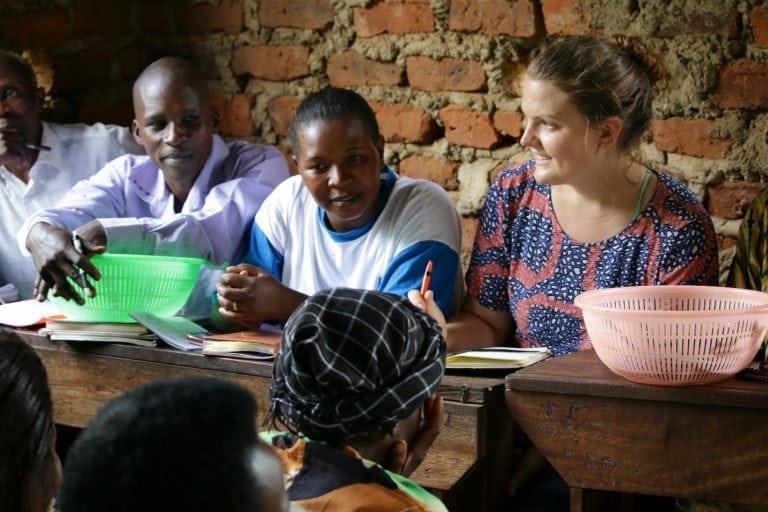E4C EDITORIAL STAFF: Jen Ventrella, Expert Fellow; Grace Burleson, Research Manager; Mariela Machado, Program Manager
PARTNER COLLABORATORS: Dr. Ron Severson, Director, MAPLE Microdevelopment; Rogers Muduku, Country Director, MAPLE Microdevelopment-Uganda; Suzan Kimono, Field Officer, MAPLE Microdevelopment-Uganda
To view the full report, click here.
In 2020, MAPLE Microdevelopment founded the Mbale Center for Innovation and Design (MCID) with the aim to empower creative design thinking and community action related to environmental preservation and economic agency in the Mt. Elgon region of Eastern Uganda. With the increasing threat of climate change and the growth of the Ugandan economy and city infrastructure, MCID aims to bridge the gap between local community traditions and design for ecological and economic resilience in a region impacted by the legacy of colonisation and technology implementation that neglects ancestral knowledge, community needs, and socio-ecological values. Emphasizing community needs in the Water-Energy-Food nexus (WEF nexus), MCID aims to develop a breadth of opportunities for early-career Ugandans to train, practice, and explore opportunities in design thinking and social entrepreneurship.
To assist in the development of MCID programs and curriculum, Engineering for Change has partnered with MAPLE Microdevelopment to investigate the ways in which community traditions in the Mt. Elgon region of Uganda can influence and improve the design, adoption, and impact of technologies in the WEF nexus, with a focus on sacred natural sites, environmental preservation, circular economies, and economic agency. Desk research, practitioner interviews, collection of community narratives, and observations have informed the data presented in this report.
This report first provides an overview of MAPLE Microdevelopment’s approach to community engagement and goals and motivation for establishing MCID. Next, we emphasize the importance of incorporating principles of ecological resilience, ancestral knowledge, and historical context of technologies into design methodologies by providing a high-level review of these considerations within the context of the Mt. Elgon region and its peoples. This report concludes with recommendations for contextualizing technologies by emphasizing community engagement. Six specific recommendations are given:
- Enable community voice and power
- Center ecological and social values
- Deprioritize Western knowledge
- Consider historical context
- Emphasize rights of nature
- Engage in active reflection.
To view the full report, click here.
This research was completed as part of the 2020 E4C Fellowship program. Learn more about the Fellows who worked on this research collaboration by connecting with them on LinkedIn: Bryan Sherrill and Jen Ventrella.

No Comments.